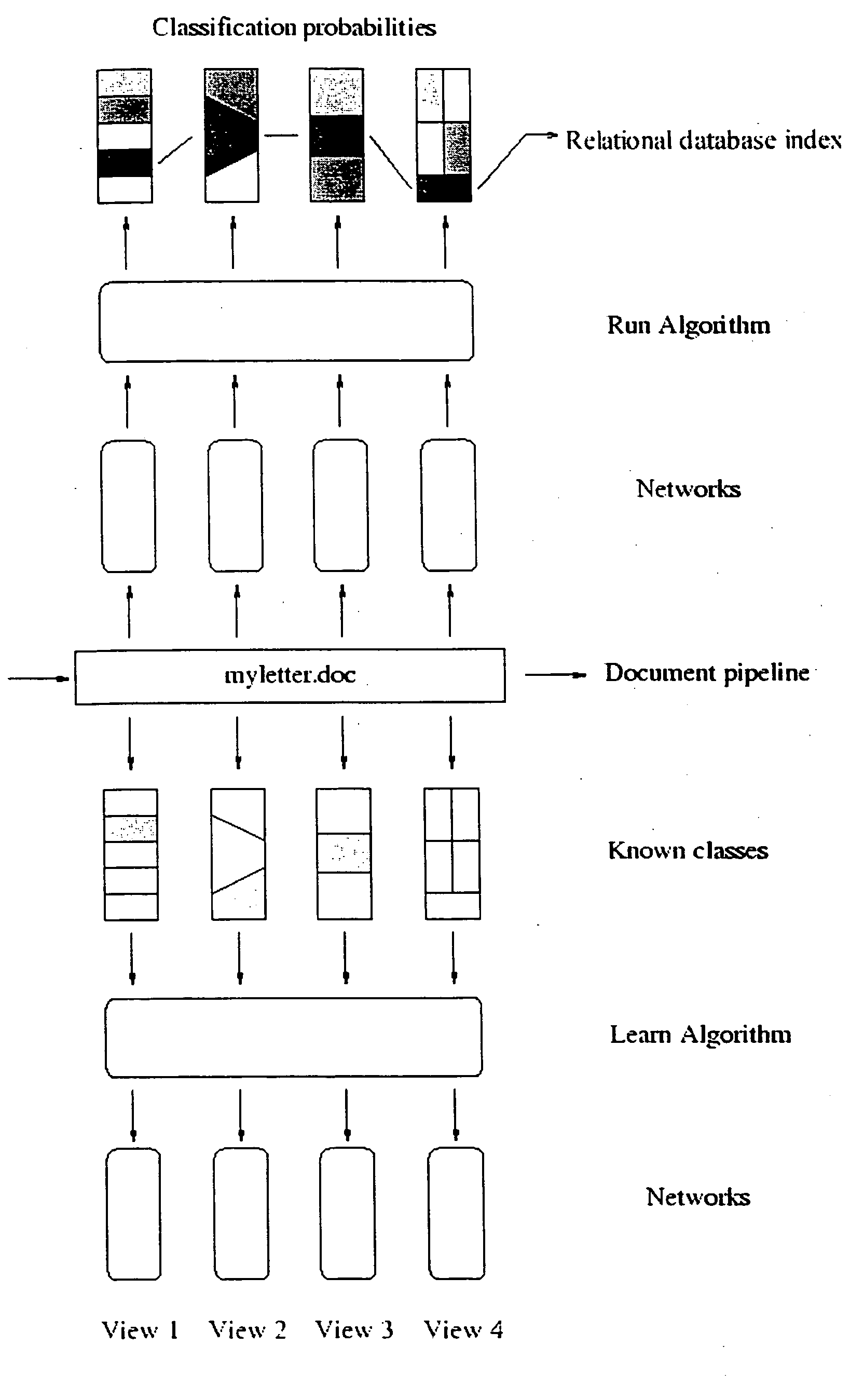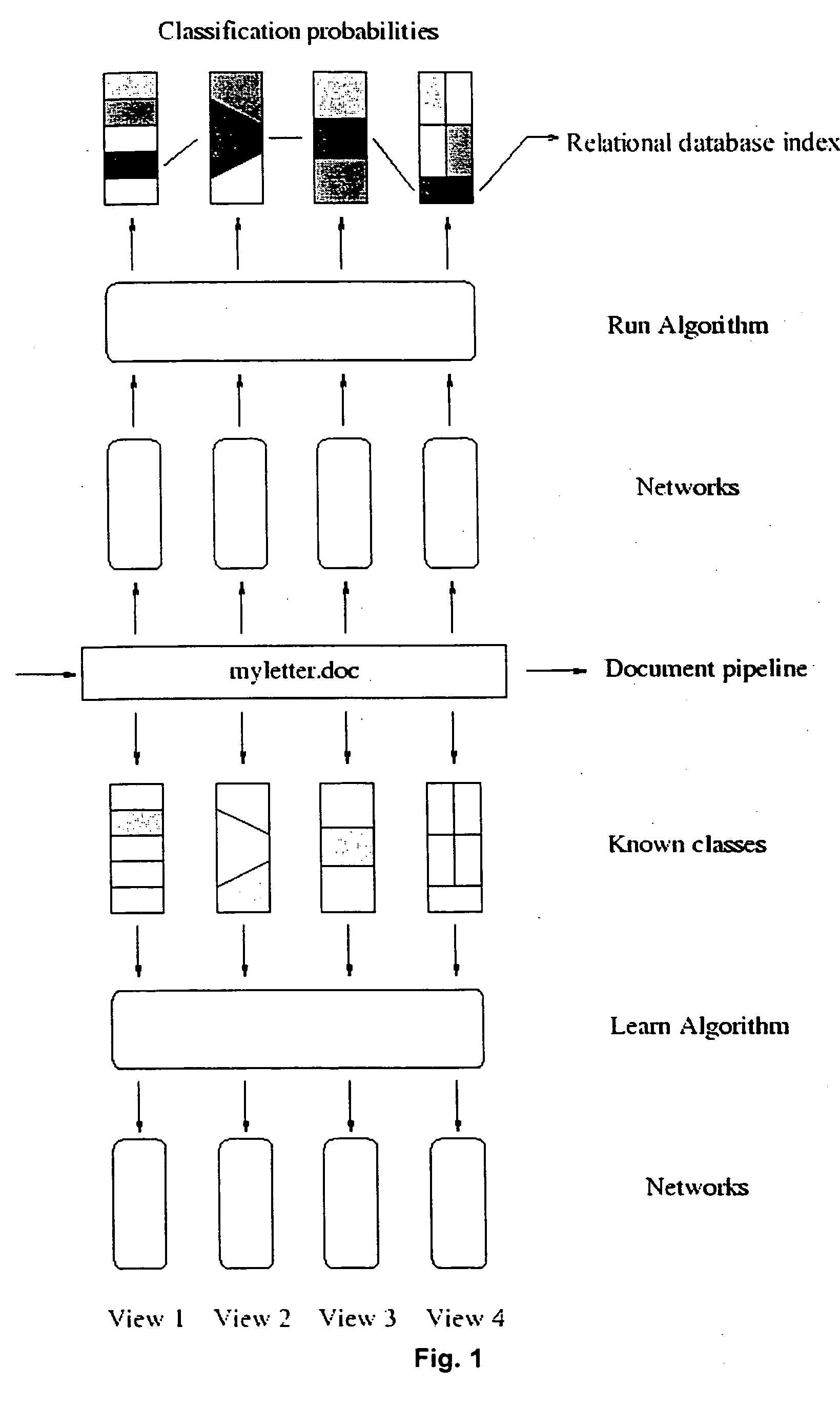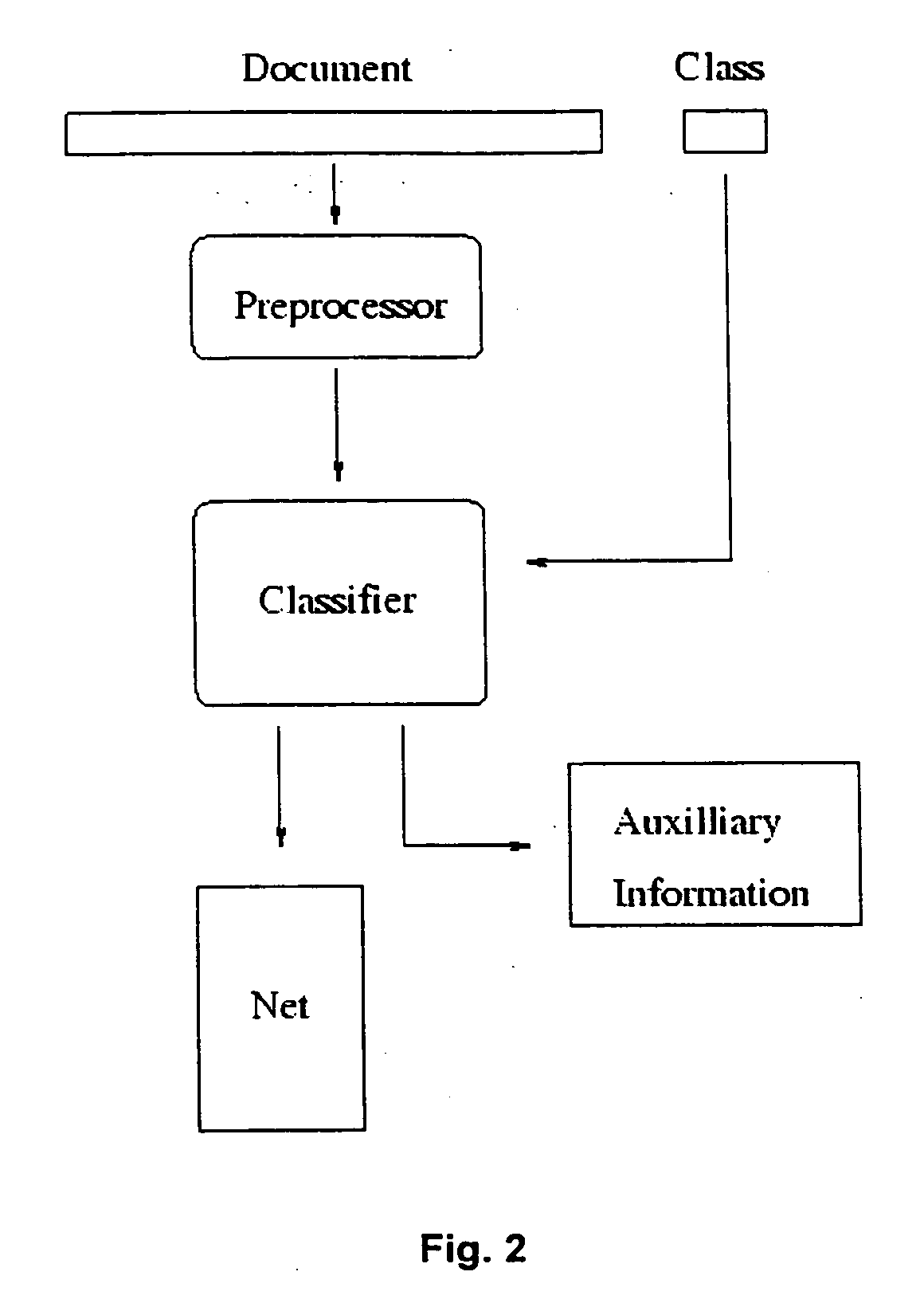Classification method and apparatus
a classification method and apparatus technology, applied in the field of classification methods and apparatuses, can solve the problems of large manpower, limited relevance feedback approach, large amount of printed documents, etc., and achieve the effect of efficient and flexible method of retrieval of documents
- Summary
- Abstract
- Description
- Claims
- Application Information
AI Technical Summary
Benefits of technology
Problems solved by technology
Method used
Image
Examples
Embodiment Construction
[0038] In the following the invention will be described in detail by means of preferred embodiments with reference to the accompanying drawings, in which:
[0039]FIG. 1 shows a schematic illustration of the overall structure of an embodiment according to the present invention;
[0040]FIG. 2 shows a schematic view of a given class-view module;
[0041]FIG. 3 shows a schematic illustration of a Voronoi-tessellation;
[0042]FIG. 4 shows a schematic view of a network corresponding to the Voronoi-tessellation of FIG. 3;
[0043]FIG. 5 shows a schematic illustration of a maximum stability perceptron; and
[0044]FIG. 6 shows a diagram representing the preformance of an embodiment according to the present invention.
[0045] In order to make the description of the underlying mathematical models more understandable we introduce first a few notations and definitions: [0046] Each document is written in some language using a sequentially organized finite sets of symbols, typically the ASCII-set. Examples ...
PUM
 Login to View More
Login to View More Abstract
Description
Claims
Application Information
 Login to View More
Login to View More - R&D
- Intellectual Property
- Life Sciences
- Materials
- Tech Scout
- Unparalleled Data Quality
- Higher Quality Content
- 60% Fewer Hallucinations
Browse by: Latest US Patents, China's latest patents, Technical Efficacy Thesaurus, Application Domain, Technology Topic, Popular Technical Reports.
© 2025 PatSnap. All rights reserved.Legal|Privacy policy|Modern Slavery Act Transparency Statement|Sitemap|About US| Contact US: help@patsnap.com



